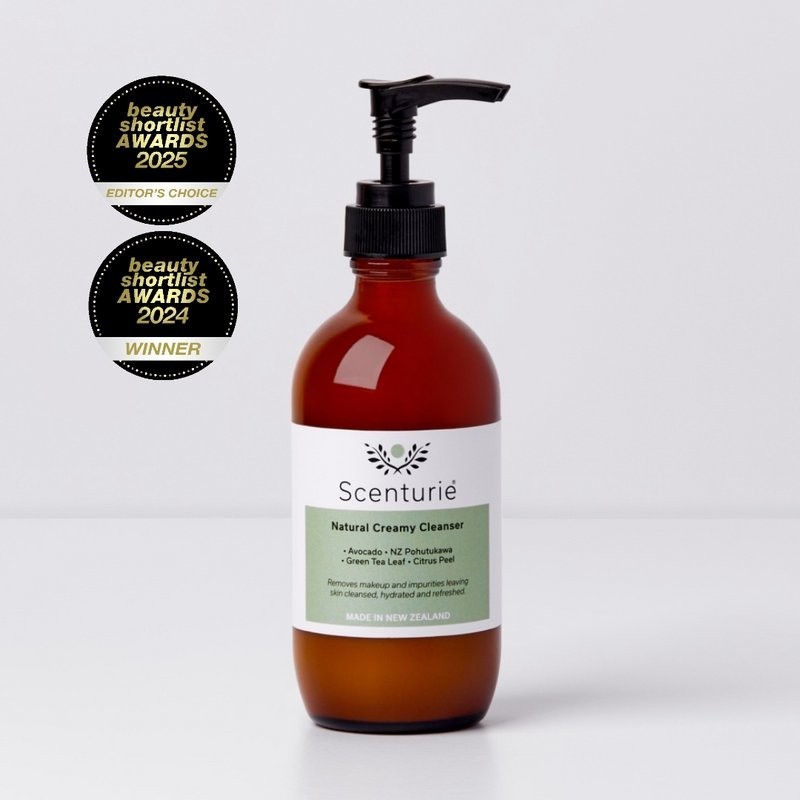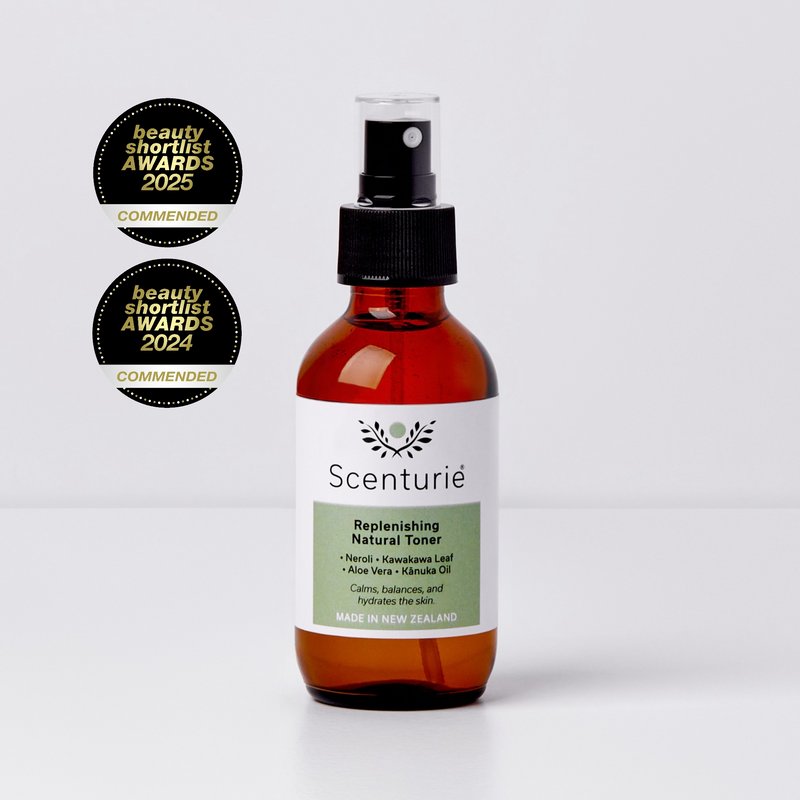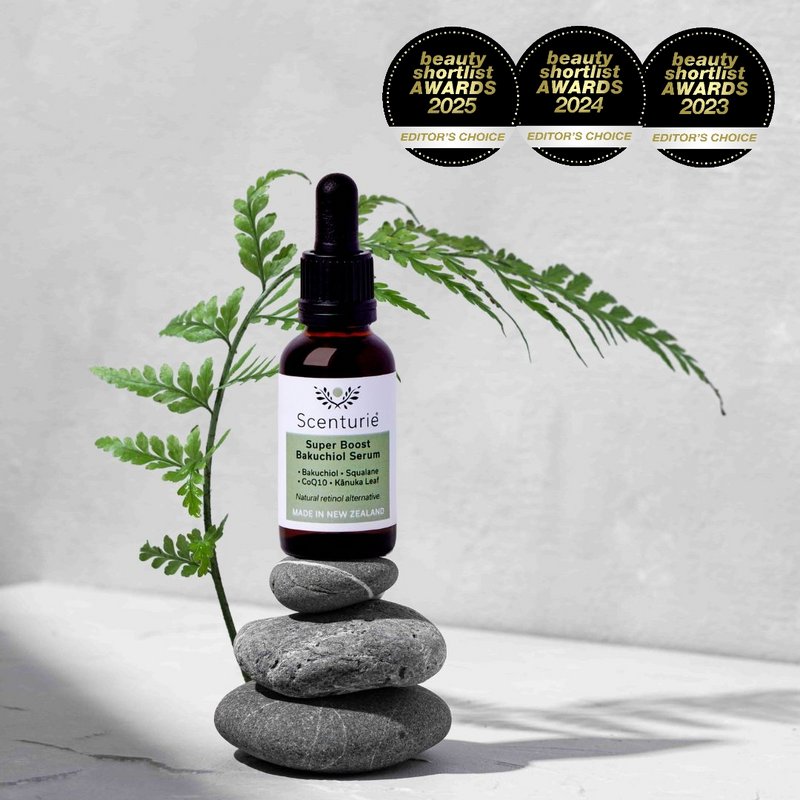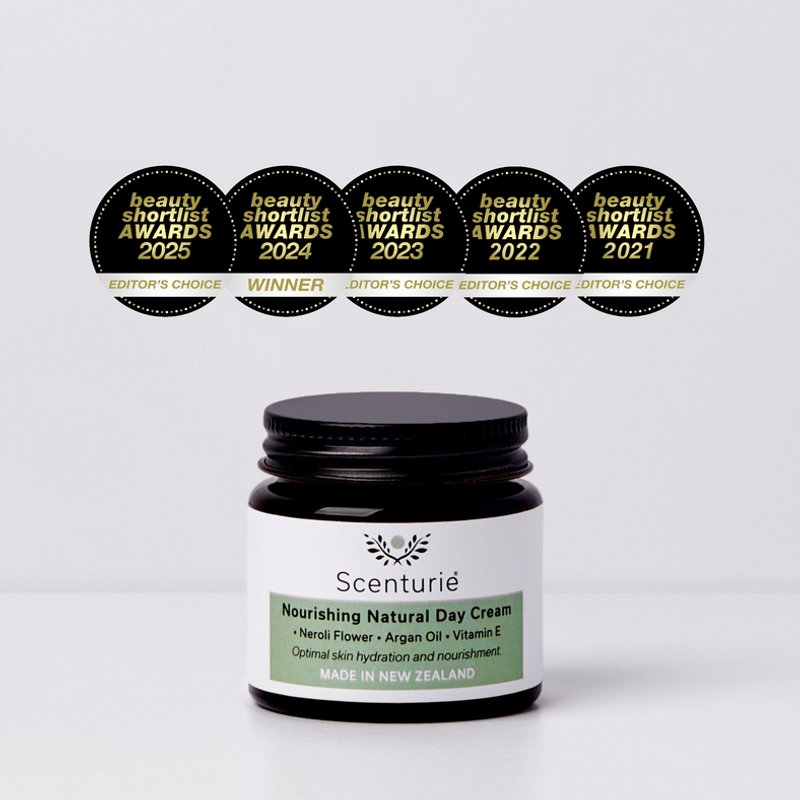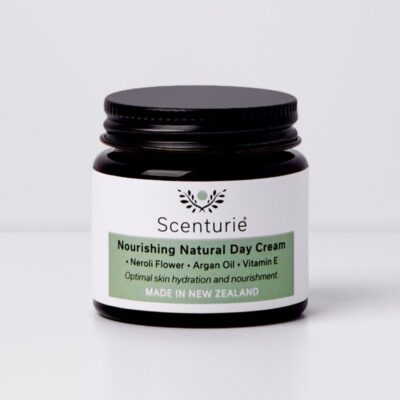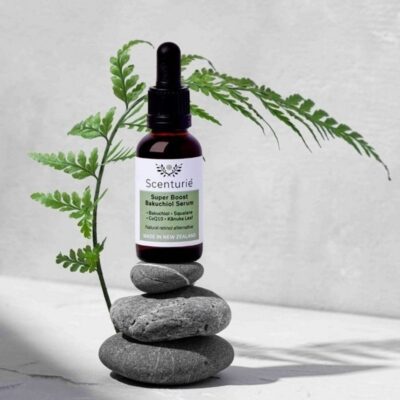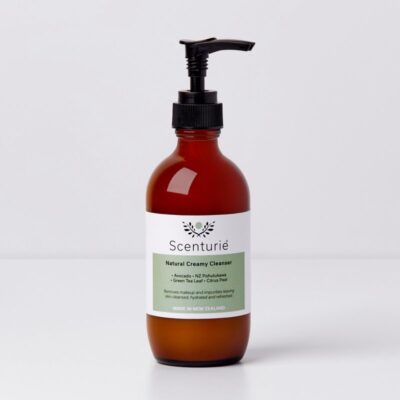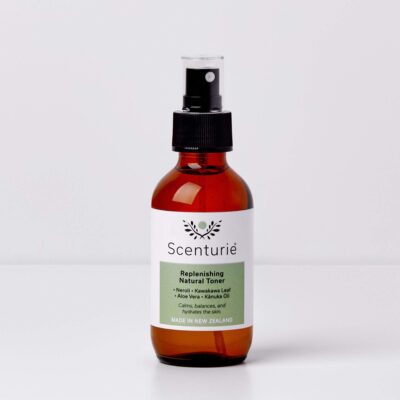The Ultimate Skincare Routine for Sensitive Skin in NZ

KEY TAKEAWAYS FOR SENSITIVE SKIN
- The Core Issue: Sensitive skin is primarily caused by a compromised skin barrier, making it over-reactive to triggers like harsh ingredients and NZ’s environmental stressors.
- The Goal is Strengthening: A successful routine focuses on soothing inflammation and rebuilding the skin barrier with minimal, fragrance-free ingredients.
- Less is More: Avoid complex routines. A simple, consistent approach with gentle cleansing, calming hydration, and daily mineral SPF is crucial for happy skin
Living with sensitive and reactive skin can feel like walking on eggshells. The constant threat of redness, itching, or a sudden reaction can make choosing skincare a daunting task, especially in New Zealand where our unique climate can add to the challenge.
At Scenturie, we understand that calming sensitive skin isn’t about adding more products—it’s about using the right ones. The key is a gentle, consistent routine that soothes irritation and strengthens your skin’s natural defences. This definitive guide provides a proven, step-by-step routine and expert advice tailored to achieving calm, resilient, and healthy skin in Aotearoa.
What are the Signs of Sensitive Skin?

The primary sign of sensitive skin is a tendency to overreact to products and environmental factors. Recognising these characteristics is the first step toward effective management. You may experience:
Frequent Redness & Flushing: Skin easily becomes red, blotchy, or flushed. In New Zealand, this is often triggered by windburn and sunburn.
Itching, Stinging, or Burning: A common sensation after applying products or being exposed to triggers.
Dry, Tight Patches: The skin often feels tight and uncomfortable, and may have flaky areas.
Reactions to New Products: A high likelihood of reacting negatively to new skincare or makeup.
Bumps or Rashes: Skin can easily develop small bumps or rashes.
Sensitivity to Climate: Symptoms often worsen with exposure to NZ’s sun, wind, or central heating.
What Causes Sensitive or Reactive Skin in NZ?
Sensitive skin is primarily caused by a weakened or compromised skin barrier, which is then aggravated by a combination of internal and external factors.
A Compromised Skin Barrier: This is the root cause. Your skin barrier is a protective outer layer that, when damaged, allows moisture to escape and irritants to get in, leading to sensitivity.
Genetics: Some people are simply genetically predisposed to conditions like eczema, rosacea, and psoriasis, which are associated with sensitive skin.
Over-Exfoliation or Harsh Ingredients: Using aggressive scrubs, high concentrations of acids, sulfates, and alcohol can strip the skin and damage its protective barrier. Look for products free from common irritants like fragrances, dyes, sulfates, parabens, alcohol, and even some essential oils, which can be triggering for highly reactive skin.
Environmental Triggers: New Zealand’s environment is a major factor. The high UV index, strong winds, and sudden temperature changes between the outdoors and heated/air-conditioned indoors can all stress a sensitive complexion.
Allergens: Common allergens, including synthetic fragrances in skincare, and environmental pollens, can trigger a reaction in sensitive individuals.
tHE CAUSE OF SENSITIVE SKIN
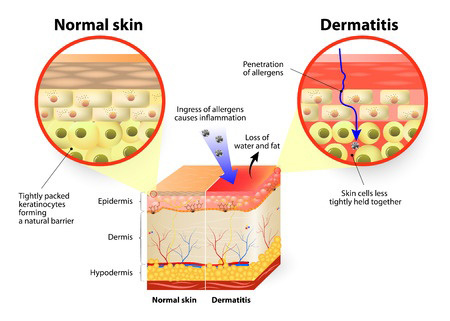
The Proven 4-Step Routine for Sensitive Skin
Consistency with a gentle routine is the key to calming sensitive skin. This simple, effective 4-step routine is designed to reduce redness, soothe irritation, and rebuild your skin barrier.
Step 1: Cleanse with Care
The best way to cleanse sensitive skin is once or twice daily with a soap-free, low-fragrance or fragrance-free, creamy cleanser. Avoid foaming cleansers which can be stripping, and never use hot water.
A formula with soothing natural ingredients, like our Natural Creamy Cleanser, effectively removes impurities without disrupting the delicate skin barrier.
Step 2: Hydrate and Soothe
After cleansing, use an alcohol-free toner or mist to provide an instant layer of calming hydration. This step helps to reduce tightness and prepares the skin to absorb serums and moisturisers more effectively.
Look for ingredients known to soothe, like Aloe Vera. Our Replenishing Natural Toner is an excellent choice for a gentle, hydrating toner.
Step 3: Nourish and Repair
Next, apply a nourishing serum or oil to deliver key lipids and antioxidants that help repair the skin barrier. For sensitive skin, simple is best.
A high-quality serum or facial oil can be incredibly effective at soothing and protecting. Our Super Boost Bakuchiol Serum is rich in essential fatty acids and antioxidants that are vital for strengthening the skin barrier and calming redness.
Step 4 (Morning Only): Moisturise and Protect
A good moisturiser is non-negotiable for locking in hydration and protecting the skin from the environment. In the morning, this step must be followed by sunscreen.
Choose a moisturiser with natural, calming ingredients. Formulations that include NZ native botanicals like kawakawa and harakeke are renowned for their hydrating and healing properties. Our Nourishing Natural Day Cream is ultra-gentle and has no added fragrance.
For sun protection, mineral-based sunscreens containing zinc oxide are often best tolerated by sensitive skin, as they sit on top of the skin rather than being absorbed.
Summary of the Routine
| Step | Morning Routine | Evening Routine |
| 1. Gently Cleanse | Natural Creamy Cleanser | Natural Creamy Cleanser |
| 2. Hydrate & Soothe | Replenishing Natural Toner | Replenishing Natural Toner |
| 3. Nourish & Repair | Super Boost Bakuchiol Serum | Super Boost Bakuchiol Serum |
| 4. Moisturise & Protect | Nourishing Natural Day Cream + Mineral SPF 30+ | Nourishing Natural Day Cream |
Lifestyle Habits for Calm Skin
Take Lukewarm Showers: Hot water can strip the skin of its natural protective oils, exacerbating dryness and sensitivity. Keep showers and face washing short and use lukewarm water.
Manage Stress: Stress can be a major trigger for inflammatory skin conditions. Incorporating stress-management techniques like mindfulness, exercise, and adequate sleep is crucial for skin health.
Eat a Balanced Diet: A diet rich in anti-inflammatory foods like fruits, vegetables, and omega-3 fatty acids can help support a healthy skin barrier from the inside out.
Frequently Asked Questions (FAQ’s)
Q: What ingredients should I absolutely avoid? A: For sensitive skin, it’s wise to avoid synthetic fragrances, alcohol (listed as ‘alcohol denat.’), sulfates (like SLS/SLES), and harsh physical scrubs. Always patch-test new products.
Q: Is “hypoallergenic” a guarantee that I won’t react? A: Unfortunately, no. “Hypoallergenic” is an unregulated marketing term. It simply means a brand has tried to omit common allergens, but it’s not a guarantee. The best approach is to read the full ingredient list and patch-test.
Q: Can I still exfoliate sensitive skin? A: Yes, but very cautiously. Avoid harsh physical scrubs. A very gentle chemical exfoliant with Lactic Acid (an AHA) or enzymes, used just once a week, may be tolerated. It’s best to consult a professional before starting.
Shop the Recommended Routine
Ready to start your journey to calmer, more resilient skin? These are the core products recommended in this guide, specifically chosen for their gentle and soothing properties.
-
Super Boost Bakuchiol Serum | 30mL
$64.99Select options This product has multiple variants. The options may be chosen on the product pageRated 5.00 out of 5 -
Natural Creamy Cleanser | 195mL
$52.99Select options This product has multiple variants. The options may be chosen on the product pageRated 5.00 out of 5 -
Replenishing Natural Toner | 100mL
$44.99Select options This product has multiple variants. The options may be chosen on the product pageRated 4.96 out of 5

